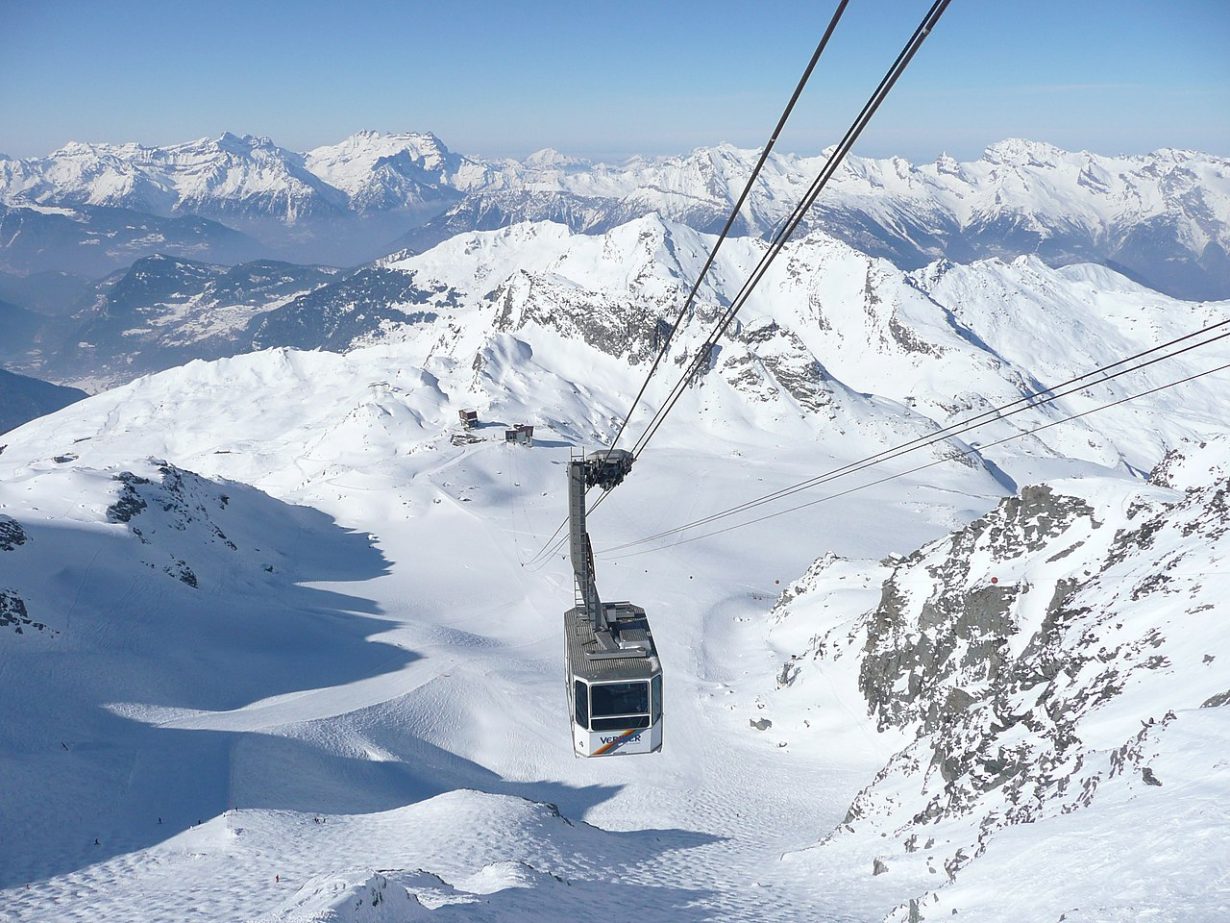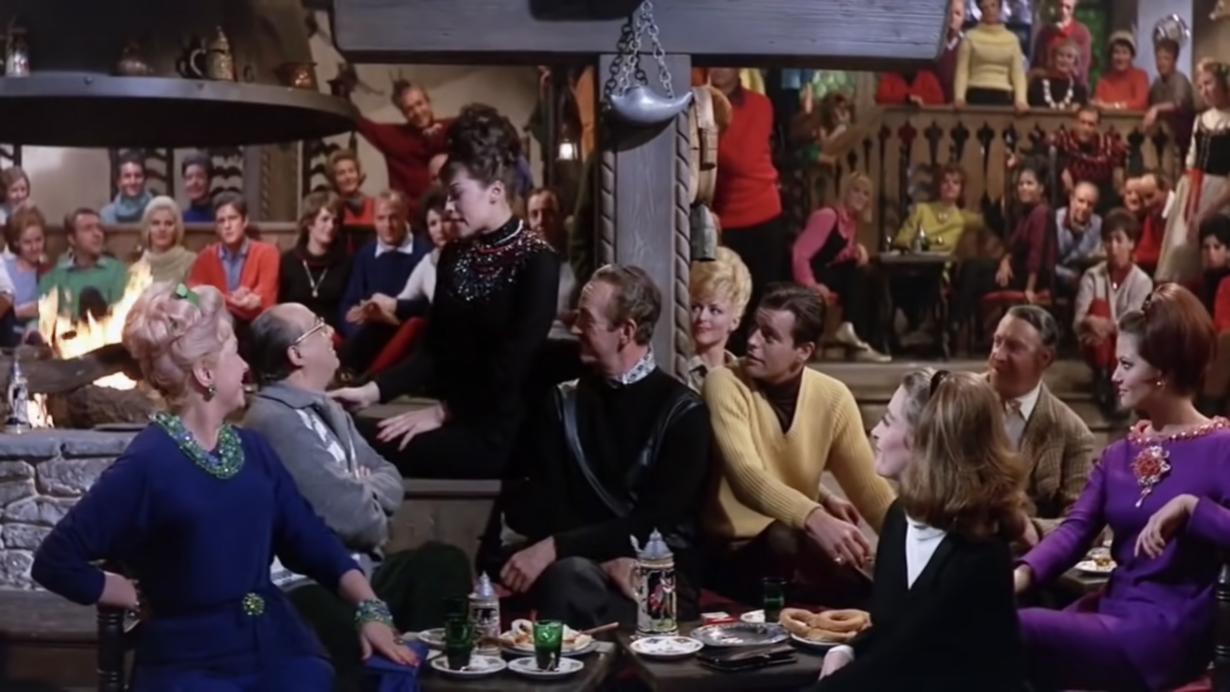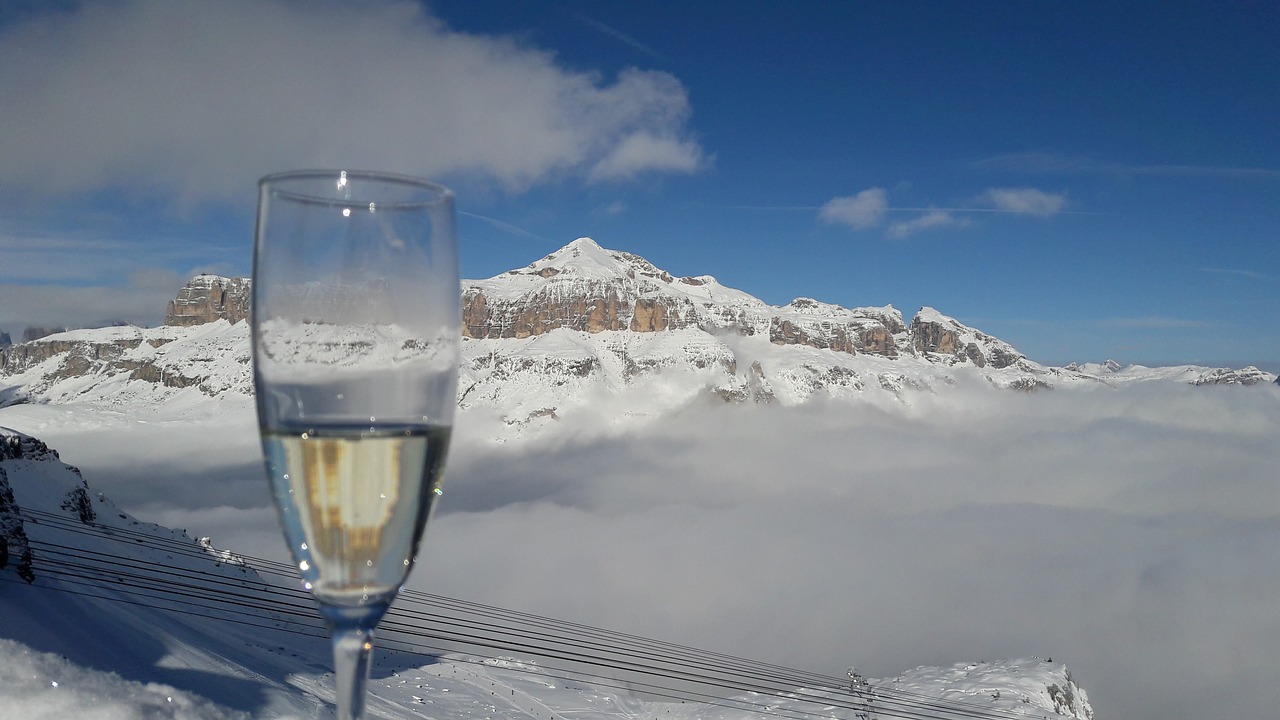Invited to participate in the exclusive Valboir Art/Climate Summit in the Swiss Alps, up-and-coming art-critic-activist Pandora Storm sees the opportunity to take her career to new heights
On a fine January morning, Pandora Storm sat in her room at the W Hotel, having arrived from Gatwick the previous night to speak at Anthropo(s)cene, the fifth edition of the Valboir Art/Climate Summit. What an extraordinary few months it’s been, she thought, taking in the view. Beyond her window, the peaks of the Swiss Alps were festooned with ribbons of cloud, and plump mounds of snow lay upon the roofs of the ski lodges like feather pillows. Noticing a bulging tote bag that had been placed on the coffee table, she emptied the contents onto the bed. Inside was a box of handcrafted Swiss chocolates, a facemask with the Anthropo(s)cene logo printed on it, a set of locally produced organic toiletries and a letter from the curators.
Dear Pandora
We are delighted to welcome you to Anthropo(s)cene, an art summit at the end of the world.
Over the course of three days, 20 international artists, activists and thinkers will gather to discuss the climate emergency and participate in a curated programme of radical interventions in Valboir and the surrounding area.
In this moment of epic liminality, we congregate here, in the frozen Alpine landscape, to ask: What cultures have emerged as humanity stares into a void of its own creation? What art is being made as we contemplate civilisation’s end? And, most importantly of all, who will put the ‘scene’ into the anthropo(s)cene?
Sincerely
Olga Bröt and Martin Ruffles
That person, Pandora felt sure, will be me. And why not? Over the past 18 months she had become expert in making a scene. Not so long ago she was a nobody writing her first article for autoimmune online: ‘10 Things I Hate About You’, a list of the moral failings of the contemporary artworld, from its romance with dirty money to its toxic collecting policies. She had soon ditched the stuffy moniker ‘art critic’ for the more exciting ‘art activist’, and now here she was, at a Swiss ski resort, where in a few hours’ time she would take to the stage at an international art and climate summit, having been invited to provide ‘brave and honest feedback’ on the programme during the opening night for a modest 4,000 Swiss francs. Pandora’s star had begun to rise in December, when she publicly resigned from her position as 2021 Critic-in-Residence at the Lyle, in protest at the museum’s ongoing sponsorship by British Petroleum. The plaudits were still streaming in. Just the previous day she had been named by The Custodian in a list of ‘Cultural Agitators to Watch in 2022’, an article accompanied by a professional black-and-white photograph of Pandora leaning against a brick wall and scowling, shaved head bowed, septum piercing glinting in the light. Along with the letter of resignation and a copy of her CV, she had sent the photograph to every media outlet she knew of.
Pandora picked up her phone and reclined on the king-size bed in her hotel slippers and towelling robe. Leaning into the pleasantness of the moment, she enjoyed the scent of the complimentary hand cream – pine and lemon-balm, she decided, suited the pH balance of her skin – and the familiar sight of the fire and raised-fist emojis that flooded her Twitter notifications. The calming atmosphere, however, was soon disturbed by the discovery of an unflattering tweet. ‘If you resign a week before your residency ends, and you’ve already received the final paycheck, does it still count as protest?’, asked a user called @timbot. Pandora bristled. She had never heard of @timbot, but cursory investigation revealed he had participated in the Lyle’s critic-in-residence programme a few years prior, and that he now made a digital zine called Rootstalk, dedicated to rhizomatic plant life, which he offered to send to his 62 followers for free. Despite the tweet having yet to attract a single like, Pandora decided that it was necessary to take action. ‘Tired of ppl in positions of privilege trying to silence me,’ she wrote in reply to her 25K followers, adhering to the maxim that attack is the only reliable form of defence. ‘Just resigned from world-famous institution bc I didn’t want 2 compromise my politics. Bootlickers like @timbot shld watch their backs.’

Having dispatched her adversary, it was time to get ready for the day ahead. Lamenting the difficulties of having to dress for the weather and the revolution, Pandora eventually settled upon a lilac lipstick and matching beanie hat, a necklace with the word ‘misandrist’ cut out in neon orange Perspex dangling from a silver chain and a shiny black puffer jacket that extended right down to the ankles of her black leather boots. Hiding her copy of Knausgård’s My Struggle: Book Five in the safe, along with her passport – there was no telling when she might be called upon to host an afterparty in her room, and she was loath to give the wrong impression – she headed downstairs to join the group that had assembled for the VIP tour. The first stop on the itinerary was the hotel itself, where Untitled (Global Capital = Chronic Precarity # 18) (2021) by Milo Morales was slung over a free-standing wall in the lobby. It was a patchwork made from dirty scraps of canvas. Each piece of canvas had been used as a doormat during one of the ten artist residencies Morales had attended in 2021, a process the artist referred to as ‘precarious praxis’. Avoiding eye contact with the other guests, Pandora stalked the lobby on the hunt for material. “You wouldn’t believe how frustrating it was to miss out on residencies in Okinawa and Paris due to border closures”, she overheard Morales explain to a man in a navy blazer and red chinos, who commiserated with his predicament, having himself been stuck in a single property for the best part of three months. “I’m glad, at the very least, that I was able to make it to Joshua Tree, Dubai, Milan, Kochi, Miami, Vancouver, São Paulo, London, Barcelona – and, of course, Valboir.” The two men were standing in front of a section of the patchwork covered in Balenciaga footprints – evidence of the ‘precarious praxis’ enacted on the doorstep of a cabana in South Beach, Miami, in December. Pandora surreptitiously took a photograph and uploaded it to Instagram, along with the caption, ‘the 1% are out in force’.
By midmorning Pandora was sitting in a cable car gliding up Mont Fort, on her way to see a sculpture by the artist duo Ekblad and Boogman. Upon arrival, the group encountered an astonishing sight: a lifesize Louis Vuitton shopfront, carved from a giant block of ice, installed on the banks of a frozen mountain lake. As the white facade of the shopfront sparkled in the winter sunlight, Ekblad and Boogman gave a heartfelt talk about the vagaries of conspicuous consumption, and the anticapitalist politics of producing art using ephemeral materials. “It was quite an undertaking,” added Olga Bröt. “We acquired the services of a team of ice-carving experts from Warsaw, and the sculpture was injected with liquid nitrogen and transported up the mountain in a large wooden crate, suspended from the bottom of a helicopter.” The visit to the lake was not without its trials. When Martin Ruffles took a group photograph without Pandora’s consent, she insisted that he delete it immediately. Following reassurances from the curatorial team that not only would no further breaches of her privacy occur, but that a programme of sensitivity workshops would take place for the summit’s staff, which Pandora generously offered to run herself, the group eventually descended the mountain, Martin sitting alone and chastened in his cabin. Once they reached the road, they were whisked away in a fleet of electric cars to see Daddy Bear, the next sculptural intervention on the itinerary, installed in the foyer of the Valboir Local History Museum: a taxidermy polar bear, seated in an oversize wheelchair, hooked up to an IV drip by the back of its paw.
That afternoon, while the programme of talks began in the town hall, Pandora took a nap and a swim in the W Hotel’s heated outdoor pool, and wondered what to do about the evening’s speech. She filed her nails, ordered room service and flicked through the photographs she had taken that day, hoping to find inspiration: the Balenciaga footprints, the curators chugging Glühwein in front of the ice sculpture, an old lady in a mink coat standing beside the dead bear. The problem was, she’d already posted them all online, and after the morning’s exertions she had no desire to sit at her desk and write. When nothing came to mind, she turned to Twitter, and was instantly heartened by the many followers who had rallied to her defence following @timbot’s attempted smear campaign. While scrolling through and liking messages of support – ‘speak truth to power queen’, ‘don’t make me come for you @timbot’, ‘pathetic attention seekers like @timbot don’t deserve the air they breathe’ – an idea suddenly came to her that she knew would really shake things up.

By the time the light had begun to fade, Pandora was busy in the W Hotel’s meeting room, armed with a pair of scissors, some tape and a stack of cardboard boxes that she’d procured from a woman at reception. Usually reserved for corporate events, the meeting room had been transformed into an ad hoc community centre by the Bristol-based art collective Soft Riot. Pandora was impressed by how busy they had been. The chairs and desks had been taken to a nearby storage facility, the polished wooden floor covered with rag rugs, the word ‘Revolution’ sprayed onto the windows in seven different languages using a special type of wipe-clean paint, a library of handbooks for protesters built in the corner and the white walls decorated with picket signs that members of the collective had made onsite.
At 7pm the audience began to make its way in. Soft Riot had curated a cocktail menu for the occasion, and after drinks had been ordered and selfies taken in front of the picket signs – ‘System Change Not Climate Change’ and ‘Capitalism Isn’t Working’ proved particularly popular – the guests sat down on giant beanbags that had been scattered across the floor. Once all had settled, the lights went out. When they came back on, a chorus of gasps filled the room. For much to everybody’s surprise, rather than standing with a microphone in hand, ready to give a talk, Pandora was lying inside an open coffin constructed from cardboard. Her mouth was covered in duct tape, her hands were bound and her all-white outfit had been daubed in blood-red handprints.
At Pandora’s request, a member of Soft Riot handed out sheets of paper among the audience, each bearing the following statement:
MY SILENCE REPRESENTS ALL OF THE VOICES THAT HAVE BEEN ERASED BY THE ORGANISERS OF THIS EVENT. THIS IS NOT A SUMMIT ABOUT CLIMATE CHANGE. IT IS A SHAMEFUL DISPLAY OF GLOBAL PRIVILEGE. I REFUSE TO SPEAK UNTIL THEIR VOICES ARE HEARD. I REFUSE TO SPEAK BECAUSE DOING SO WOULD MAKE ME COMPLICIT.
As the room digested Pandora’s powerful message, something remarkable began to happen. First, the members of Soft Riot all lay down on the floor, striking a similar pose by pressing their wrists together over their stomachs. An art critic from Stockholm followed suit, having carefully removed her Acne scarf and placed it in her Anthropo(s)-cene tote bag. Then, slowly but surely, everyone in the room – members of the press, artists and writers, local dignitaries, a representative from the summit’s corporate sponsor, Schweizer Bank, along with Ekblad and Boogman, and Olga and Martin – rose from their beanbags and assumed the same position. For almost an entire minute, 52 people lay on their backs in complete silence, electrified by the spirit of resistance and collective action.
Later that evening, Pandora stood by the bar, sipping a Solidarity Sour through a cardboard straw inserted through a hole in the duct tape. “You absolutely must come to Norway for the oil show,” said the director of a museum in Oslo, handing her a business card. Determined to maintain her vow of silence, Pandora said nothing, but she thought to herself, I just might do.
Rosanna McLaughlin is a writer and editor based in Glasgow
